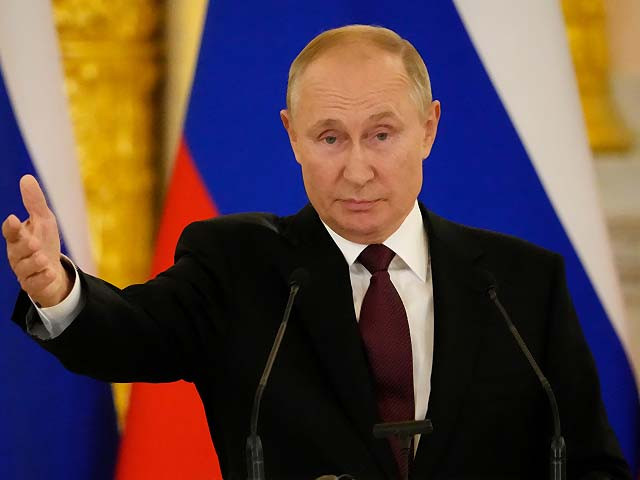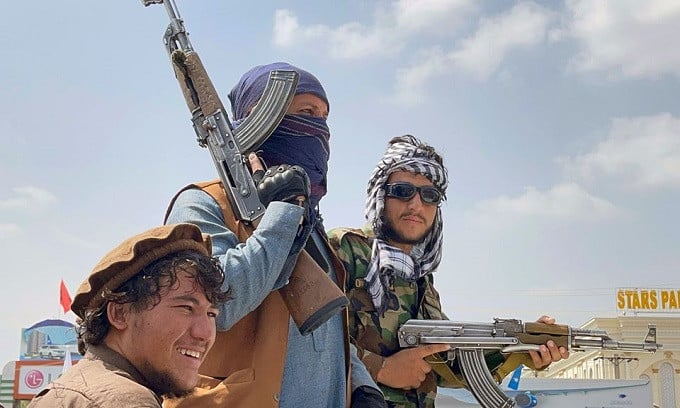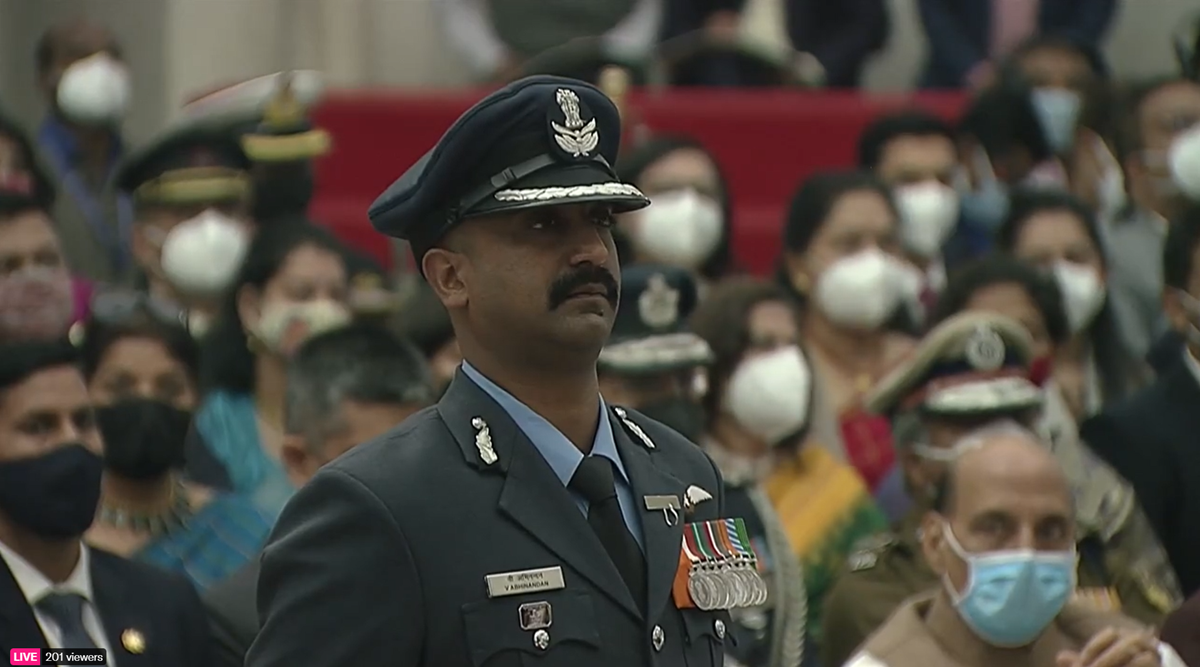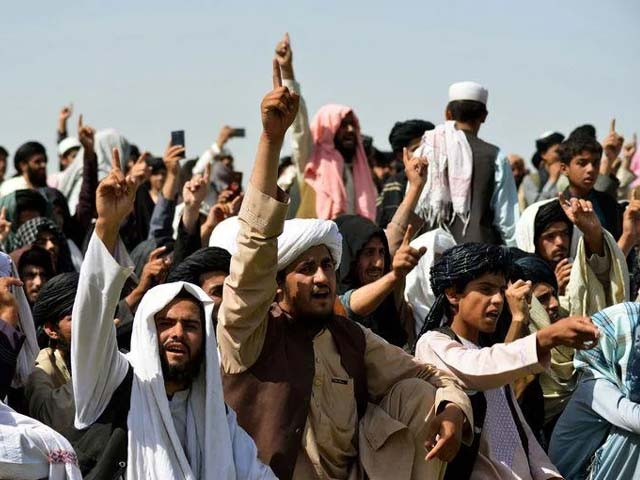
Why Putin’s stance towards the Taliban is pragmatic
Russian President Vladimir Putin elaborated on his stance towards the Taliban during a news conference with outgoing German Chancellor Merkel during her farewell visit to Moscow. The Eurasian Great Power has cultivated pragmatic ties with the group that it still officially designates as terrorists despite hosting them on several occasions as part of the Afghan peace process. Here’s the relevant excerpt from that event:
“Due to the rapidly unfolding events in Afghanistan, we prioritised this issue. The Taliban now controls almost the entire territory of that country, including its capital. This is the reality, and we must proceed from this reality as we strive to avoid the collapse of the Afghan state. It is imperative to put an end to the irresponsible policy of imposing outside values on others, to the desire to build democracies in other countries according to other nations’ “patterns” without regard to historical, national or religious specifics and totally ignoring the traditions of other nations.
We know Afghanistan, and we know it well enough to understand how this country functions and have had the opportunity to learn first-hand the extent to which trying to impose unusual forms of government or social life on it is counterproductive. There has not been a single time when socio-political experiments of this kind succeeded. All they do is destroy states and degrade their political and social fabric. At the same time, we see that the Taliban has already put an end to hostilities and is now seeking to ensure order, promising to guarantee safety for both local residents and foreign missions. I hope that this is how things will go.
The international community should keep a close eye on these developments with the UN Security Council playing a coordinating role. There is one more point I wanted to make in this regard. We believe that it is essential at this point to prevent terrorists of all kinds from spilling over into Afghanistan’s immediate neighbours, including under the guise of refugees.”
As can be seen, the Russian leader reaffirmed that the Taliban – which he hopes will keep its word to behave responsibly – is in control of Afghanistan so the international community must work with it in order to prevent that country’s collapse. They mustn’t continue their disastrous policy of meddling in its affairs. Russia will also continue ensuring the security of its Central Asian allies from uncontrollable refugee flows and terrorists.
This is precisely the policy that all other stakeholders should practice. Although they still designate the Taliban as terrorists, the group has pledged to change its ways by cutting ties with international terrorist groups, respecting minorities’ and women’s rights, and not exacting retributive justice on those Afghans who collaborated with the occupying forces. It deserves a chance for everyone to see whether it’s sincere or not.
Western countries don’t agree with the Taliban’s strict interpretation of Islam and the influence that this has on its vision of society. That’s understandable since the Taliban also don’t agree with their liberal-democratic socio-political models either. The solution is for everyone to respect one another’s right to develop their countries according to their national traditions instead of aggressively imposing their views onto the other.
The Taliban simply want to be left alone to develop Afghanistan according to its traditions as the group understands them to be. Whether this vision sincerely reflects the will of the country’s majority will remain to be seen, but President Putin’s observation that the group ended hostilities and is seeking a return to order suggests that it’s not being opposed to the extent that would hint at the existence of significant opposition.
This conclusion contradicts the West’s liberal-democratic dogma which preaches the supposed universality of its liberal-democratic socio-political model. In reality, that model isn’t enthusiastically embraced by most non-Western cultures since it goes against their historical traditions and has even sometimes been weaponised by foreign forces to destabilise their countries through Hybrid Warfare for geostrategic ends.
The external imposition of an alien socio-political model, whether through conventional military force or unconventional means such as NGO-driven Color Revolutions, will inevitably destabilise the targeted country. It doesn’t matter if the model in question is the West’s liberal-democratic one or the erstwhile USSR’s Marxist-Leninist model, what President Putin said holds true for Afghanistan and every other country in the world.
For him to speak in such a way shows a level of political maturity missing from many Western leaders. He acknowledges his predecessor state’s cardinal sin in Afghanistan, which was to aggressively impose its former model onto that country. Not many Western leaders will ever admit that they were wrong about their disastrous attempts to do the exact same thing with their own models in Afghanistan, Iraq, Libya, and Syria.
Furthermore, the Russian leader’s proposal for the UNSC to take the lead in monitoring events there speaks to his sincere commitment to international law, which is also another characteristic lacking among many Western leaders. Their past unilateral impulses are responsible for destroying multiple countries, and each time Russia reminded them that the tragedies they’re responsible for occurred due to the illegality of their actions.
Had the world’s leading countries coordinated their response to global crises (whether objectively existing in the case of what happened after 9/11 or artificially manufactured with respect to Iraq for instance), then history might have been completely different. That’s why it’s so important for the UNSC’s permanent members to behave responsibly when it comes to observing subsequent developments in Taliban-led Afghanistan.
Some in the US are already agitating for the Pentagon to bomb the billions of dollars’ worth of American military equipment that the Taliban just seized but this would be a disastrous attempt to “save face” since it would only embolden ISIS-K. That terrorist group is the top regional security threat, and it’s only the Taliban that’s holding them at bay in Afghanistan and preventing their expansion into other countries.
It’s understandably an unprecedented blow to American pride to see the same group that they still officially consider terrorists using so much of their country’s cutting-edge military equipment, but the Taliban is ISIS-K’s sworn enemy, which even Biden admitted during Friday’s speech. Degrading the Taliban’s anti-terrorist capabilities would therefore endanger the entire region, though that might be the Machiavellian objective.
Russia should therefore do its utmost to dissuade the US from this course of action. Under no circumstances must America be allowed to bomb its own military equipment that the Taliban just seized. The group never espoused any interest in foreign expansion unlike ISIS-K so it’s in the broader region’s security interests for the Taliban to retain control of that equipment in order to fight those terrorists.
Moscow might ultimately be unsuccessful since it’s unlikely to threaten any meaningful consequences against Washington if it once again behaves unilaterally, but Russia can at the very least pre-emptively inform the world about how counterproductive it would be for global security if the US ended up doing that. To this end, it can also make the US’ Western allies aware of the likely refugee crisis that this could eventually lead to.
That would be a clever way to play on their liberal-democratic beliefs since many of these same countries curiously contradict their own ideological dogma by nowadays refusing to take in potentially limitless numbers of Afghan refugees due to the intense public backlash from most of their societies since the 2015 Mideast Migrant Crisis. It would therefore be in their best interests not to have another refugee crisis happen at all.
While there’s veritably one occurring already at the Kabul Airport, everything would likely be many magnitudes of order worse if the US destroyed the Taliban’s seized American military equipment and therefore “passively facilitated” ISIS-K’s rise throughout Afghanistan. The pretext that this is for “regional security” would ring hollow since none of Afghanistan’s neighbours voiced concern about the group’s seizure of that equipment.
They’re all afraid of uncontrollable refugee flows and ISIS-K, not the Taliban, with whom they’ve cultivated political ties over the past few years. President Putin’s pragmatic stance towards the group should hopefully inspire other members of the international community further afield in the West to treat the Taliban differently than they presently are and thus put pressure on the US not to attack it after the end of its withdrawal.




COMMENTS
Comments are moderated and generally will be posted if they are on-topic and not abusive.
For more information, please see our Comments FAQ